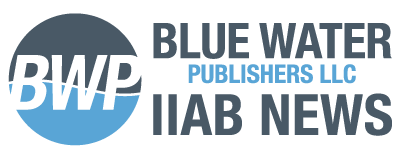ST. JOHNS, Fla., – An above-average level of tropical cyclone activity is projected for 2021, a year after a record-setting 30 named storms developed during 2020’s Atlantic hurricane season, according to a forecast released by Colorado State University’s (CSU) Department of Atmospheric Science.
Led by research scientist Phil Klotzbach, PhD, also a non-resident scholar at the Insurance Information Institute (Triple-I), the CSU Tropical Meteorology Project team anticipates 17 named storms, eight hurricanes and four major hurricanes during the 2021 season, which starts on June 1 and continues through Nov. 30. A typical year has 12 named storms, six hurricanes and three major hurricanes.
Thirteen of the 30 named storms that occurred in 2020 were hurricanes. Six of the 13 hurricanes in 2020 became major hurricanes. Major hurricanes are defined as those with wind speeds reaching Category 3, 4 or 5 on the Saffir-Simpson Wind Scale. A record-setting 11 named storms made landfall in 2020 in the continental U.S.
“Last year, millions of American lives were disrupted by the record-setting number of storms, many of which generated catastrophic wind and water damage. All it takes is one storm to make it an active season for you and your family, so now is the time to prepare as the start of 2021’s Atlantic hurricane season nears,” said Sean Kevelighan, CEO, Triple-I.
“Homeowners and business owners should review their policies with an insurance professional to ensure they have the right amount and types of coverage, allowing them to be financially protected from property damage caused by either wind or water,” Kevelighan added. “That also means exploring whether they need flood coverage, which is not part of a standard homeowners, renters or business insurance policy. Additionally, they should take steps to make their homes more resilient to windstorms and torrential rain, such as installing roof tie-downs and a good drainage system.”
Flood policies are offered through FEMA’s National Flood Insurance Program (NFIP) and several private insurers. The installation of a wind-rated garage door and storm shutters also boost a home’s resilience to a hurricane’s damaging winds, according to the Triple-I.
Private-passenger vehicles damaged or destroyed by either wind or flooding are covered under the optional comprehensive portion of an auto insurance policy.
Through its Resilience Accelerator and other educational materials, the Triple-I offers numerous hurricane season preparedness tips. These include:
- Developing a photo/video inventory of your possessions and your home’s exterior, which will ease the claims-filing process
- Preparing a hurricane emergency kit with a minimum two-week supply of essential items, such as drinking water, non-perishable food and COVID-19 safety items (face coverings, hand sanitizer)
- Creating an evacuation plan well before any storm warnings are issued
Klotzbach said the likely absence of a significant El Niño in the Pacific is a primary factor that indicates an active Atlantic hurricane season is on the horizon.
“Tropical Atlantic sea surface temperatures are near their long-term averages, while subtropical Atlantic sea surface temperatures are much warmer than their long-term average values. The warmer subtropical Atlantic also favors an active 2021 Atlantic hurricane season,” Klotzbach stated.
CSU predicts that 2021 hurricane activity will be about 140 percent of the average season, while 2020’s hurricane activity was 170 percent of the average season. The 2021 forecast indicates a 69 percent probability that at least one major hurricane will make landfall in the continental U.S. this year.
